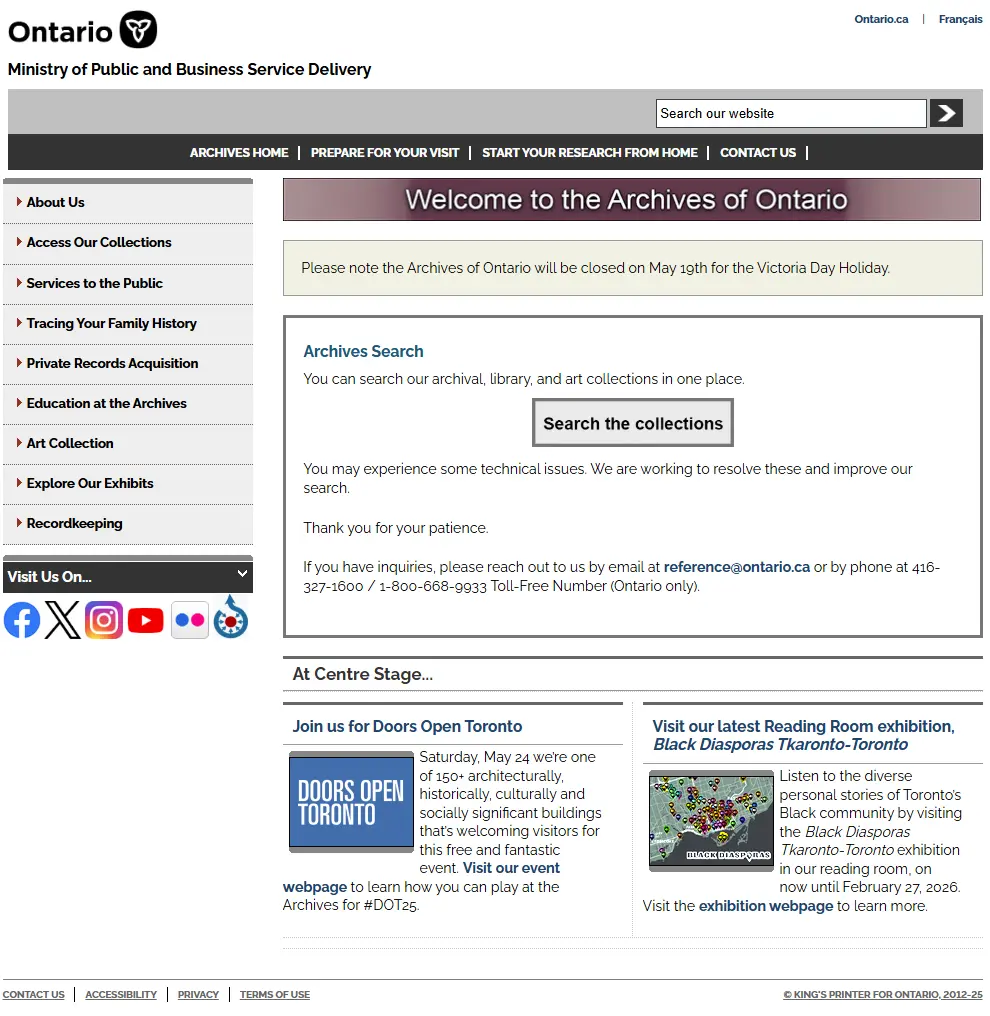Archived websites
Access archived Government of Ontario webpages including websites created for commissions and public inquiries and retired Archives of Ontario online exhibits.

Archived ontario.ca pages
To find older pages from the official Government of Ontario website, ontario.ca, you can visit Archive-it.org.
A snapshot of ontario.ca is taken twice a year, and before major government changes such as elections.
To search for a page, enter a keyword, the page title or URL in the search bar or learn more about how to do an advanced search.
Contact us for more information.
Commissions and inquiries
Find archival websites for past Ontario commissions and public inquiries on Archive-it.org.
These websites were created by the Government of Ontario to share updates from various commissions and public inquiries, including final reports. These include:
- the Walkerton Inquiry
- the SARS Commission
- Ontario’s Long-Term Care COVID-19 Commission
- the Ipperwash Inquiry
- the Elliot Lake Inquiry
- the Motherisk Commission and Hair Analysis Inquiry
- the Ottawa Light Rail Transit Commission
- others
These websites are examples of “born-digital” records created by government ministries. They belong within government record series and have their own reference codes (RG). You can find full descriptions of these websites in Collection Search.
Retired online exhibits
Find captures of our retired online exhibits on Archive-it.org.
Some exhibits date from the early 2000s and may include perspectives or language that seems outdated. We preserve and make them available to show how interpretations of archival records changes over time along to reflect new and influential ideas about society, culture, reconciliation and belonging.
What to expect from archived webpages
Original English and French-language versions are available for most archived pages. Select “français” on English pages to get the French version and vice versa.
Archived pages are no longer maintained and may not have the same functionality as active pages. You may encounter issues, including:
- non-working search
- dead “feedback” and “location offices” menu buttons
- broken links
- video or audio content that doesn’t play
- missing accessibility features
Contact us to ask about getting access to unplayable media on archived webpages.
